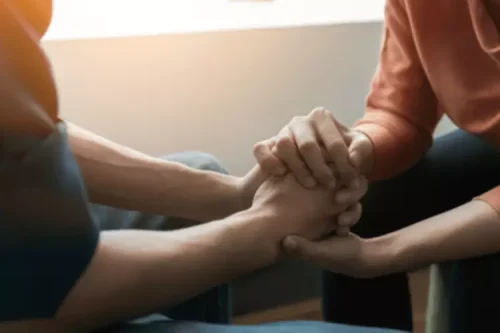In such situation individual parent sessions allow the therapist to provide more appropriate parenting skills, as described below. Children and adolescents who have experienced these traumas may find TF-CBT an effective method in the process of returning to a healthy state of functioning. During this component the therapist helps children recognize connections among thoughts, feelings and behaviors (the “cognitive triangle”) and replace maladaptive cognitions (inaccurate or unhelpful thoughts) related to everyday https://ecosoberhouse.com/ events with more accurate or helpful cognitions. At this point in TF-CBT the therapist is not focusing on trauma-related thoughts with the child, since it is more effective to process these during the trauma narrative component. The therapist may use a variety of techniques to assist children with cognitive processing, including progressive logical (Socratic) questioning, responsibility pie, and best friend role play9; 10. A PTSD diagnosis is not necessary, although some PTSD symptoms are typically present.
Benefits of Trauma Therapy

Both parents and children may become able to better process emotions and thoughts relating to a traumatic experience through TF-CBT, which can provide those in therapy with the necessary tools to alleviate the overwhelming thoughts causing stress, anxiety, and depression. TF-CBT can help people who have experienced trauma learn how to manage difficult emotions in a healthier way. A secure and stable environment is provided in order to enable children to disclose details of trauma. Children are shown how perceptions may be distorted and are given the tools to redesign those perceptions.
Esther Deblinger
Finally, one study that compared TF-CBT with Cognitive Behavioral Intervention for Trauma in Schools found that the school intervention was effective in decreasing depression, whereas TF-CBT was not (14). The short-term intervention was developed to help children and adolescents who have experienced a traumatic event. At first, looking into past traumatic experiences can cause symptoms of trauma to surface. One study found that those who experienced an increase in symptoms experienced significant improvement by the end of treatment. Trauma therapists have additional training in trauma and use skills and strategies that are designed to help people overcome the effects of traumatic events without re-traumatizing.

How Trauma Therapy Works
This may include playing interactive psychoeducational games such as the What Do You Know game13, or for teens, discussing psychoeducational information such as that available at During each session the therapist carefully calibrates and includes increasing exposure to trauma reminders while encouraging the child and parent to use skills learned in previous sessions in order to master the fear, anxiety or other negative emotions evoked upon exposure to these trauma memories. Through cbt interventions for substance abuse this process the child and parent learn new cognitions (e.g., “I can talk about sexual abuse without crying”; “Maybe my child is not damaged by what happened”). With time and ongoing practice, these cognitions become stronger and generalize to other situations, gradually replacing the maladaptive ones they initially had about the child’s traumatic experience. Current evidence suggests that this may be the underlying process through which trauma-related fear is diminished12.
Therapist Guidance
A common error made with young children is use of the word ‘fault.’ While young children may imitate adults who say the trauma/abuse was not their fault, they may have little understanding of the meaning. Thus, it is important to address the issue of responsibility for abuse in more developmentally-understandable ways. ’ may be a better way of initiating a conversation that may alleviate children’s feelings of responsibility. Helping young children make a list of reasons children are not responsible for adult behaviours may make the concept of responsibility more concrete.
Evaluation of effectiveness

The Assessing the Evidence Base series provides a systematic literature evaluation for a selection of commonly used mental health and substance use services. The authors evaluated service-specific research articles and reviews that were published from 1995 through 2012. They provide ratings of the strength of the evidence, descriptions of service effectiveness, and recommendations for future implementation and research. Details about the research methodology and bases for the conclusions are contained in a separate introduction to this series.
3. Relaxation
The therapist provides personalized relaxation strategies to the child and encourages them to practice these on a regular basis at home. These may include focused (yoga) breathing, progressive muscle relaxation and visualization, skills that have been demonstrated to produce physiologic relaxation responses; but therapists may also encourage children to use a variety of other relaxation strategies based on the child’s own interests and developmental level. For example, younger children often like to relax through blowing bubbles, dance (e.g., “Hokey Pokey”, Chicken Song) and song (“Row, Row, Row Your Boat”); while teens often prefer to relax using their favorite music, physical activities or crafts such as crochet or knitting. It is important for children to develop a variety of different relaxation strategies since a particular strategy (e.g., exercise) may be effective in some settings (e.g., after school or with peers) but not in others (e.g., when going to sleep at night). Clearly, the implementation of this model as outlined depends on the presence of a competent, child-focused caregiver at the time of treatment, which cannot be presumed in all families affected by abuse and maltreatment.
- Caregivers may be asked to praise children’s efforts to express their feelings in words between sessions.
- In evaluating TF-CBT together with other cognitive-behavioral approaches, this Cochrane review provided useful information on cognitive-behavioral approaches in general, but it confounded the evidence in support of the effectiveness of TF-CBT as a distinct cognitive-behavioral approach.
- These are some common forms of trauma that therapy can address; however it’s important to note that trauma can include any event or experience that causes emotional or psychological harm.
In the TF-CBT model, parents and children participate in parallel treatment sessions; for each component of treatment, the therapist spends part of the session with the child and part with the caregiver. In addition, the child shares the trauma narrative with the caregiver in the session. This allows the caregiver to provide support and helps the child correct distortions in his or her understanding of the abuse, including those related to what happened and who is to blame. Caregivers often also participate in the session with the child to enhance the safety component, so that the child can receive adult support in regaining a sense of security and well-being (1). Trauma-focused cognitive behavioral therapy (TF-CBT) is an evidence-based treatment model designed to assist children, adolescents, and their families in overcoming the negative effects of a traumatic experience. Young children’s emotional vocabulary may be limited but they have the capability to expand it.
- Any adult who has experienced a traumatic event, currently has mental health symptoms, or has concerns about the well-being of a child can seek help by speaking with a mental health professional.
- If you would like to find help for a child or teen, consider a therapist experienced in working with their age group, as not all therapists treat children.
- After presenting an overview of the model, challenges and developmentally-sensitive and creative strategies for engaging young children and their caregivers in TF-CBT PRACTICE components will be highlighted.
Treatment Sessions

